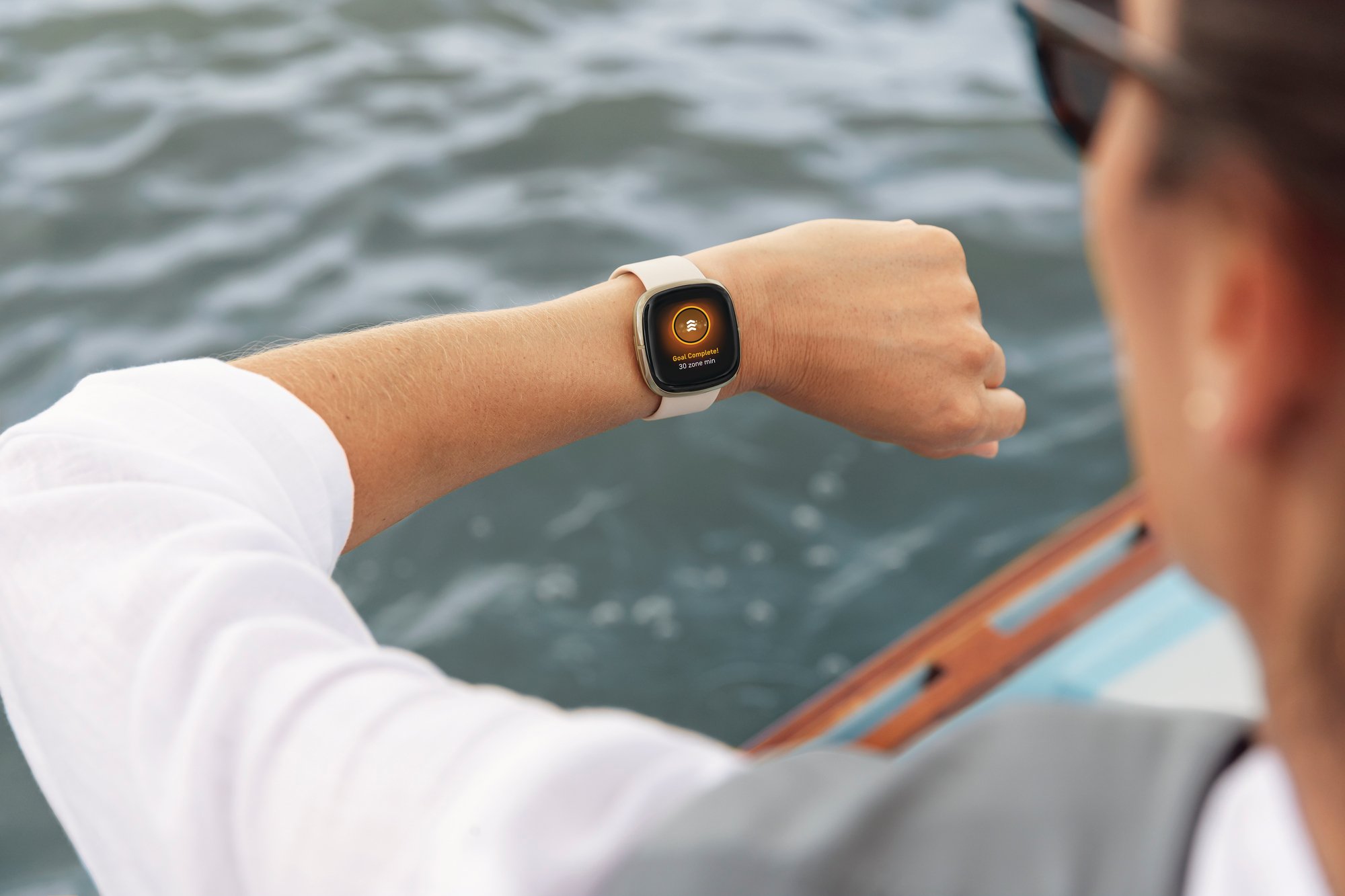In this segment from the Market Foolery podcast, host Chris Hill and David Kretzmann of Motley Fool Rule Breakers and Supernova weigh in on the latest numbers and guidance from Fitbit (FIT +0.00%): The wearables leader beat expectations -- but still lost money -- in the first quarter. And with revenue and device sales down by double-digit percentages, there are real questions about how long its fitness bands can hold consumers' interest.
Can it pivot to a software and services model? Can it survive as a stand-alone company? And perhaps just as key: What can it do to compete with the Apple Watch? The Fools discuss.
A full transcript follows the video.
This video was recorded on May 3, 2018.
Chris Hill: Fitbit's first quarter loss was smaller than Wall Street was expecting. Revenue in the quarter would have been more of a bright spot if they didn't immediately follow it up by saying, "Oh, yeah, we have to lower guidance for the current quarter."
David Kretzmann: [laughs] And if revenue wasn't actually dropping. Beating estimates for revenue when revenue is dropping -- I think it dropped 15% or 17% this quarter, it's hard to get excited about that. Beating low expectations isn't something to be extremely proud of. In this case, the number of devices that Fitbit sold dropped 27% to 2.2 million down from three million last year.
A stat that Fitbit puts out there, and I think they put it out there as a positive thing, but I look at it in kind of a different light, 38% of activations of the devices that they sold this quarter -- so, 38% of the devices that were activated this quarter -- came from repeat users. And half of those repeat users were people who were previously inactive with their Fitbit for 90 days or more. I think that just reinforces the issue that Fitbit has. I think a lot of people will buy these devices, whether it's a fitness tracker or a smartwatch, and you might use it for a few months, but then you get to a point where it's just kind of a nuisance, you forget about it, and it's just not a seamless thing to integrate into your daily life.
And Fitbit is in the midst of trying to pivot to becoming more of a software and services company, where they're tracking this health data that could work with employers for corporate wellness programs, or work with hospitals and doctors, where you can easily sync up and access a patient's data and health tracking. But the problem with that strategy is, the software and the services will only be valuable if people are using the devices, and Fitbit, up to this point, has not proven that people are actually using these devices on a regular basis.
And you might push back on that by saying, maybe it's the category as a whole, wearables just aren't as flashy or sexy as they were a couple of years ago when it was all the rage. But Apple, again, in the quarter that they just reported, they said Apple Watch sales grew in the double digits. It was a record for Apple Watch in the March quarter. So, Apple Watch is gaining market share, and Fitbit's revenue and their device sales are dropping, so this isn't just an industry problem. This is very much a Fitbit problem.
Hill: Part of me wonders if -- because, you and I were talking earlier today, and I was just trying to wrap my head around, not even what is the bull case for Fitbit, but, what's the thesis for buying this stock today? They have some amount of brand cachet. It's a decent brand. The ease of use of the device is there, and I think that's an important thing. I've talked before about Venmo. The brilliance of Venmo is that people who are not smart about technology, like me, are able to use it. Whoever designed Venmo, kudos, because they nailed that.
So, there are some positives there. But, ultimately, the thing I keep coming back to is, yeah, that gets them to the point where someone buys them. I still don't see them as a stand-alone company three to five years from now. Is that really the bull case right now? The thesis for this stock is, there's value there, someone is going to buy them?
Kretzmann: I think that's a big part of the bull thesis here. Someone might look at it and have some optimism with that software and services piece, but right now, management still says that's immaterial to their overall revenue, and I don't see that changing anytime soon. Again, if people aren't really using the devices on a regular basis and aren't regularly engaging with those devices, I don't think many organizations or individuals will find it appealing to pay for some sort of monthly premium Fitbit package. Maybe down the road at some point.
Another issue with Fitbit is, new devices they released over the past year makes up a third of their total revenue. So, this is a company that constantly has to reinvent its products. And I think they launched three new products within the past year. You compare that to Apple Watch, which is like, ever year, 18 months, they upgrade the Apple Watch, and it's selling like gangbusters. So again, this isn't just an industry issue, this is a Fitbit issue.
Another bright spot for the company -- obviously, a lot of things going poorly. They're projecting revenue to continue dropping through the rest of the year. But, half of their market cap today is in cash. The company has over $650 million in cash, no debt. The market cap is about $1.2 billion. So, you look at that, and that does provide some cushion for the market value of the company, and by extension, for the stock.
They are burning cash. They've burned somewhere in the neighborhood of $80 million over the past year, because they've been making acquisitions, and free cash flow has been pressured. But, they are expecting for 2018 to actually break even on a cash flow basis. So, you look at it, and if the company gets to a point where it's not burning cash, or not bringing cash to a great degree, and you have over $650 million in cash and no debt in the bank, that does give them a cushion and a lot of flexibility to figure things out.
I think, in the meantime, the stock doesn't really look that appealing to me. But, I think you could look at that and say, well, sure, things aren't going great, but the downside might be minimal, just given that hefty cash pile.
Hill: I can't decide if it would have been helpful for them if, remember when Under Armour bought MyFitnessPal for $700 million or whatever they shelled out for it?
Kretzmann: Hefty price tag.
Hill: Hefty price tag, and that did not work out. I can't decide if that actually would have been helpful for Fitbit's current situation -- if Under Armour was able to make that work, that more people, bigger companies, would be looking at Fitbit and saying, "Maybe we should think about kicking the tires on Fitbit." Or, if, ultimately, that was just a completely separate situation because Under Armour couldn't figure out a way to make that work.
Kretzmann: It's an interesting category, because it seems inevitable that we will get to a point where we're more proactive in tracking our health, and that there will be some solution where our doctors can have access to our health data. It just makes sense that the world is going in that direction. And I don't think any company has really cracked that code.
I think the advantage for Apple is obviously the brand cachet that they have. The Apple Watch ties in very nicely with the entire iPhone ecosystem. And, I think the Apple Watch is far and away a better product compared to the smartwatches that Fitbit or Fossil are putting out, because the Apple Watch has GPS, it has the built-in cellular technology, so it's becoming a more and more powerful stand-alone device on its own.
In the case of Fitbit, they continually have to reinvent themselves when it comes to the hardware. Then, they're trying to create and develop and acquire this software and services side of the business. But, it's like, if you're buying a device for the software and the services, you're probably going to stick with Apple Watch, which is part of that Apple platform and software ecosystem.
It's going to be an uphill battle for Fitbit, I could see them maybe plugging into a larger player, somehow. They do have a partnership with Google, so maybe that turns into a potential acquisition opportunity, or maybe that helps jump-start the software and services piece. But, in the meantime, they need to prove that people are actually engaging with these devices more than three or six months, because without that, then it's going to continue to be an uphill battle for them.





